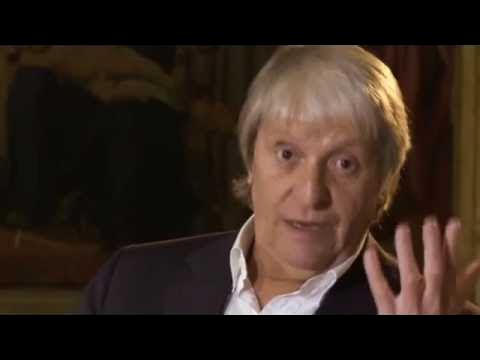Exploring the Renaissance
Summary
TLDRCozimo's guide to the Italian Renaissance highlights the period's creative explosion in art, science, and culture. The era, spanning the 14th to 17th centuries, saw a rebirth of ideas with a focus on visual arts, influenced by ancient Greece and Rome. Patrons like the Medici family funded artistic advancements, leading to innovations in painting techniques and architectural designs, such as Filippo Brunelleschi's Florence Cathedral dome. Artists became celebrities, with polymaths like Leonardo da Vinci and Michelangelo achieving superstar status. The script also touches on daily life, fashion, and the transition to Mannerism, marking the Renaissance's significant impact on European thought and culture.
Takeaways
- 🎨 The Italian Renaissance was a period of rebirth in art, science, and culture between the 14th and 17th centuries.
- 🌍 Europe emerged from the Dark Ages, and Italy's strategic location facilitated wealth from overseas trade.
- 🏛️ The Medici family of Florence, known for banking, sponsored the arts and sciences, influencing the Renaissance.
- 🖌️ Visual arts saw significant advancements with the introduction of new styles and techniques, emphasizing geometry and mathematics.
- 🖼️ Painters like Giotto and Fra Angelico drew inspiration from ancient Greece and Rome, moving away from flat, religious-themed images.
- 🎨 The use of egg tempera and gold leaf in paintings added depth and richness to the art of the period.
- 📖 Johannes Gutenberg's printing press helped disseminate Renaissance ideas and art to a wider audience.
- 🏗️ Architectural styles were inspired by ancient Greece and Rome, with features like columns, pilasters, and domes, exemplified by the Florence Cathedral.
- 👨🎨 Renaissance artists like Leonardo da Vinci and Michelangelo were 'Renaissance Men,' excelling in multiple fields including painting, sculpture, and engineering.
- 👗 Life during the Renaissance was marked by distinct social roles and a focus on style, with public events showcasing the latest fashions.
- 🎵 Music evolved from solely religious compositions to include pieces for entertainment, reflecting the broader cultural shifts of the time.
Q & A
What does the term 'Renaissance' mean?
-The term 'Renaissance' is a French word that means 'rebirth,' signifying a new beginning in various creative fields.
During which centuries did the Italian Renaissance occur?
-The Italian Renaissance took place between the 14th and 17th centuries.
How did Italy's geographical position contribute to its wealth during the Renaissance?
-Italy's position between East and West made it an ideal location for overseas trade, which brought in significant wealth.
Who were the Medicis and what was their role in the Renaissance?
-The Medicis were a family of bankers who ruled Florence and used their wealth to sponsor arts and sciences, significantly influencing the Renaissance.
What was the impact of the Renaissance on visual arts?
-The Renaissance led to new styles and techniques in visual arts, with artists striving for perfection through the use of geometry and mathematics.
How did the introduction of perspective change painting during the Renaissance?
-The introduction of perspective revolutionized the way buildings and backgrounds were painted, adding a sense of depth and realism to artworks.
Who was Filippo Brunelleschi and what is he famous for?
-Filippo Brunelleschi was a famous engineer and architect known for designing the dome of Florence Cathedral.
What was the significance of oil paints in the Renaissance?
-Oil paints allowed artists to create more realistic works by being able to apply them thickly or thinly, and they took longer to dry, giving artists more time to work on their pieces.
Who was considered a 'Renaissance Man' and what did this term imply?
-A 'Renaissance Man' was a person who excelled in multiple fields such as painting, sculpture, architecture, and engineering, embodying the spirit of versatility and innovation of the time.
What was the role of the printing press in spreading Renaissance ideas?
-Johannes Gutenberg's invention of the printing press helped disseminate new ideas and artistic styles from the Renaissance to the rest of the world.
How did life differ for men, women, and children during the Renaissance?
-Men worked in professions like banking, farming, or as goldsmiths, women were involved in silk weaving, midwifery, sewing, or as nuns, and children were expected to work hard from a young age.
What was the significance of fashion and pastimes during the Renaissance?
-Fashion and pastimes were important aspects of Renaissance life, with people wearing stylish clothing and participating in activities like chess, bullfighting, and jousting for entertainment.
What was Mannerism and how did it differ from the High Renaissance?
-Mannerism was an artistic style that followed the High Renaissance, characterized by a more stylized approach to painting, the use of cooler colors, and elongated figures in unusual settings.
Outlines

This section is available to paid users only. Please upgrade to access this part.
Upgrade NowMindmap

This section is available to paid users only. Please upgrade to access this part.
Upgrade NowKeywords

This section is available to paid users only. Please upgrade to access this part.
Upgrade NowHighlights

This section is available to paid users only. Please upgrade to access this part.
Upgrade NowTranscripts

This section is available to paid users only. Please upgrade to access this part.
Upgrade Now5.0 / 5 (0 votes)





